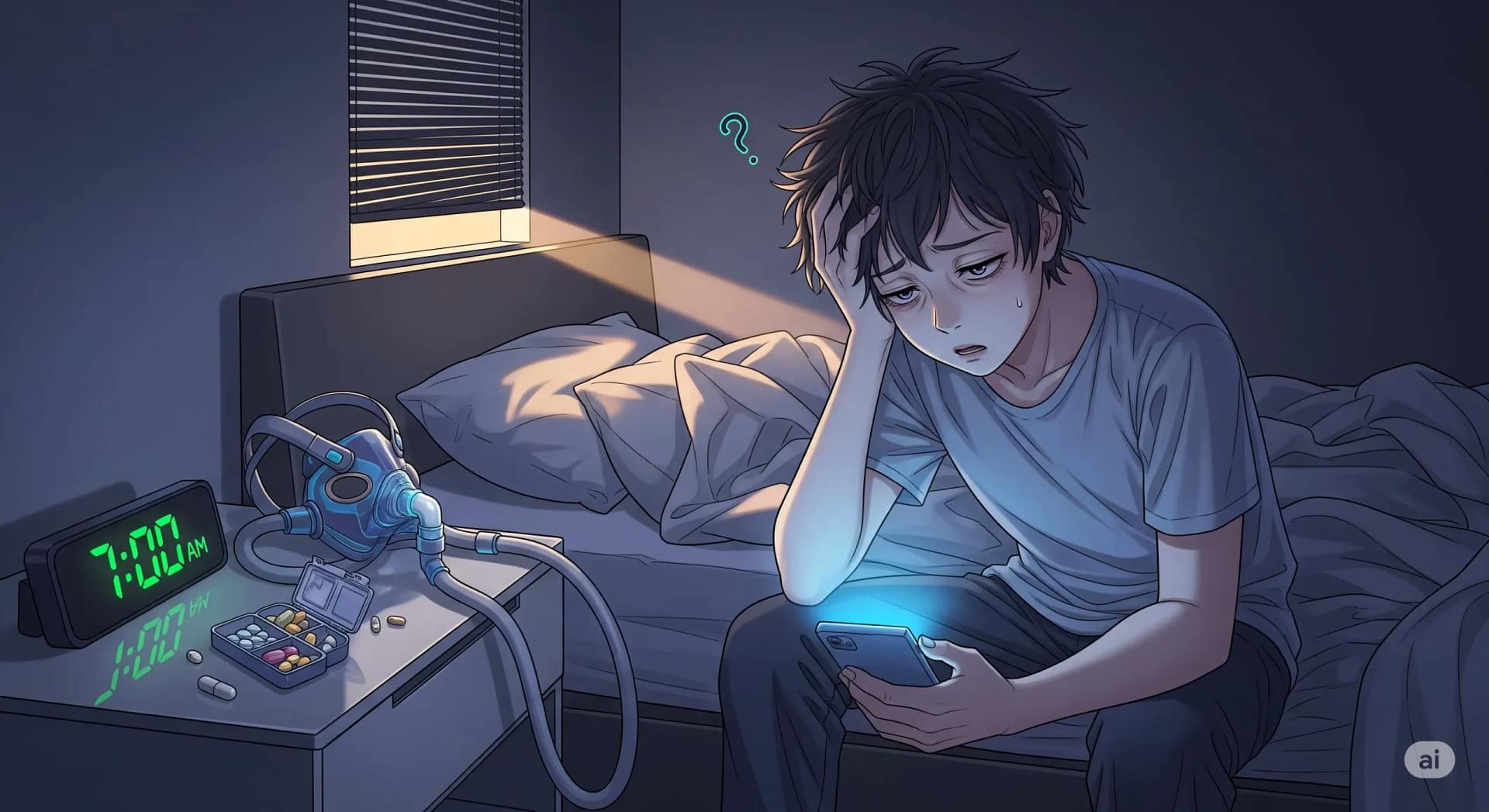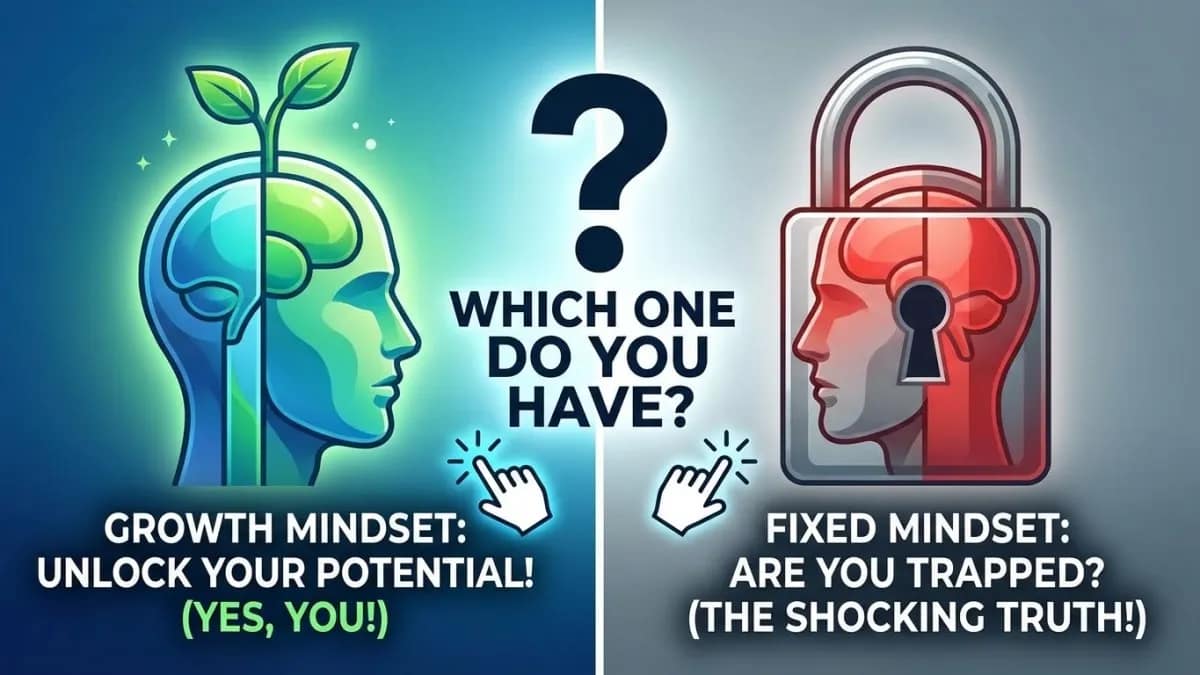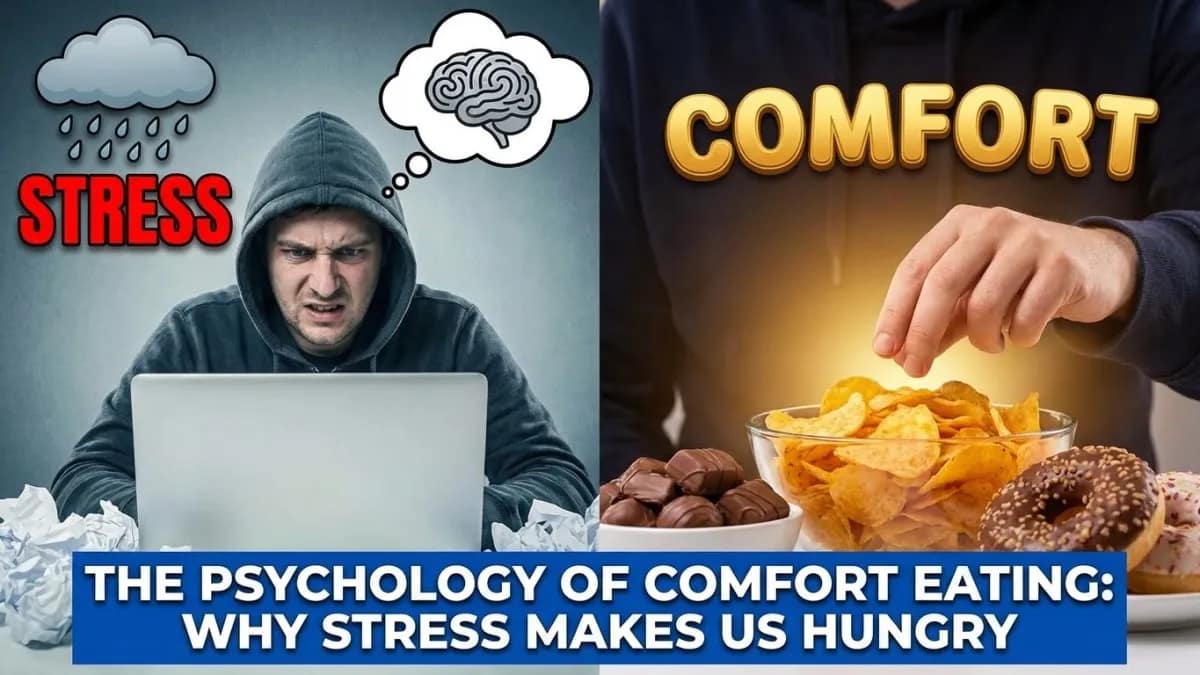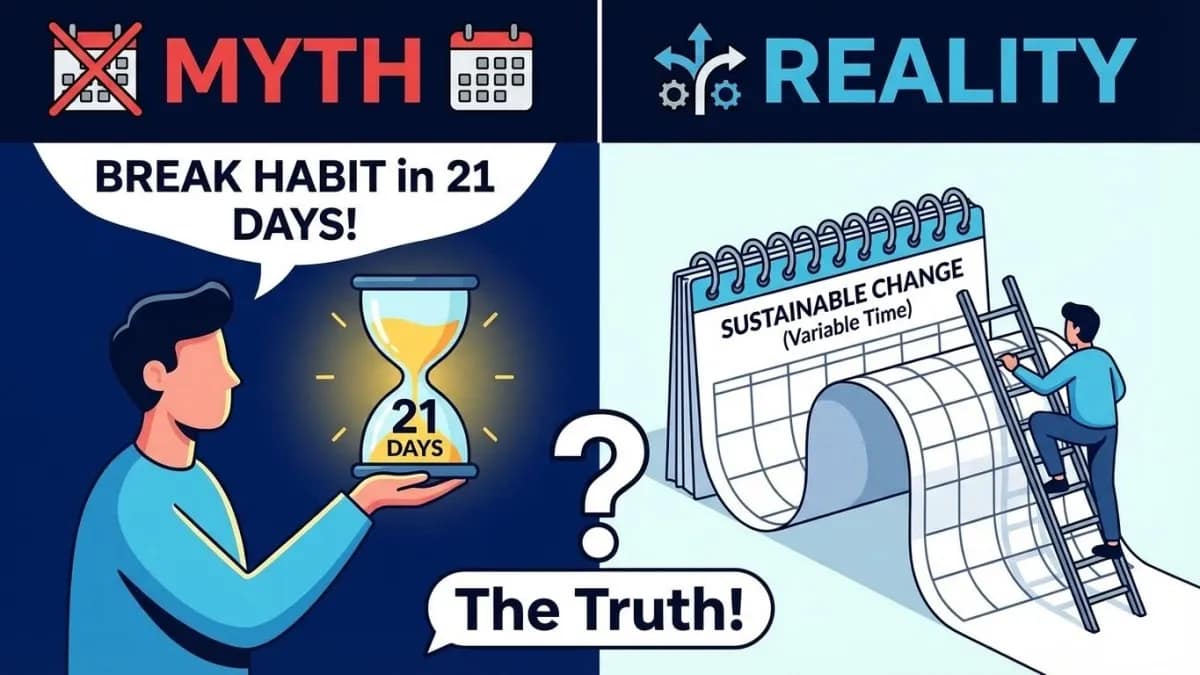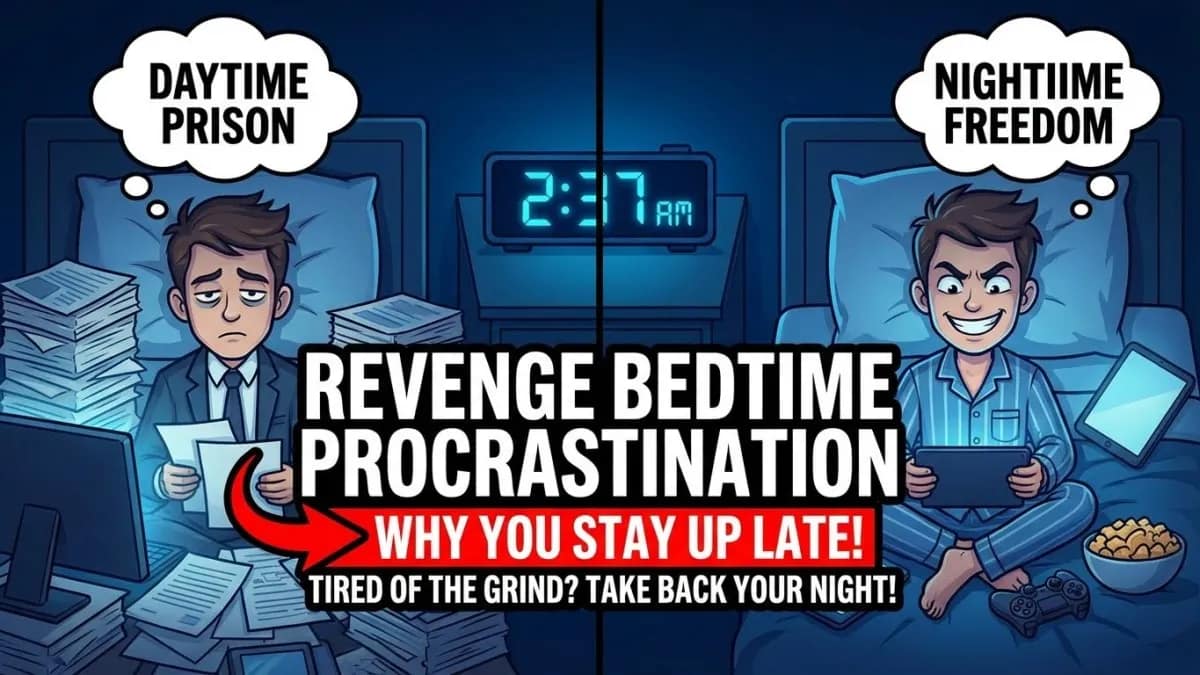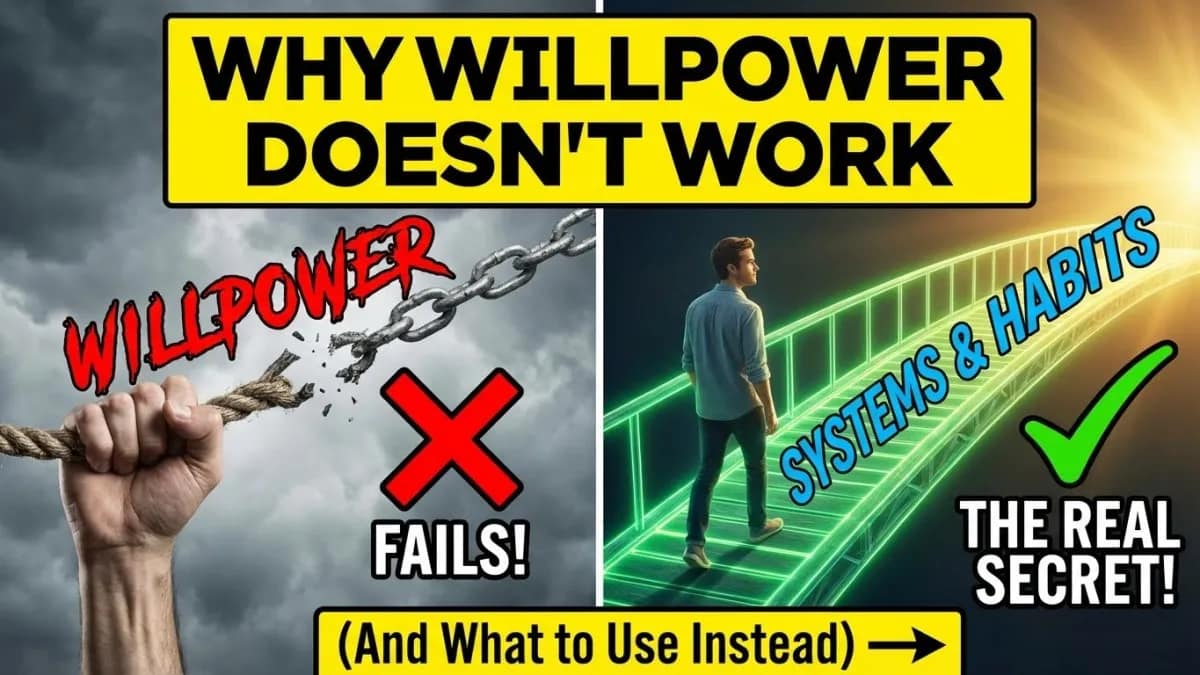You did everything right last night.
Eight solid hours. No phone, no late-night Netflix, decent bedtime. You wake up and… what the hell? You feel like you got hit by a truck. Again.
Sound familiar? You’re dragging yourself through the day wondering if your body is broken, if you’re lazy, or if this is just what “getting older” feels like.
Here’s the thing: Your sleep hours don’t mean squat if the quality sucks.
I’ve spent years researching why brilliant, disciplined people can follow every sleep rule in the book and still wake up exhausted. And what I found will probably piss you off – because the real culprits are hiding in plain sight.
The Brutal Truth About “Good Sleep”
Let me blow your mind with something most people don’t know.
Sleep quality beats sleep quantity every single time. You could sleep 12 hours and feel like garbage, or sleep 6 hours deeply and wake up energized. Research from multiple studies shows that how well you sleep matters more than how long you sleep.
Think about it. You know those mornings when you wake up naturally feeling refreshed? Versus those times when you hit snooze five times and still feel dead? That’s quality versus quantity in action.
Your brain cycles through different sleep stages – light sleep, deep sleep, and REM sleep. If these cycles get disrupted, you’re screwed. You might be in bed for 8 hours, but your brain never gets the restorative deep sleep it desperately needs.
The 6 Hidden Energy Thieves Sabotaging Your Sleep
1. Sleep Apnea – The Silent Assassin
This one’s huge, and most people have no clue they have it.
Sleep apnea means you literally stop breathing during sleep – sometimes hundreds of times per night. Your brain jolts you awake just enough to restart breathing, but not enough for you to remember. You think you slept through the night, but your brain was in crisis mode all night long.
Red flags you might have sleep apnea:
- Loud snoring (your partner probably hates you)
- Waking up with a dry mouth or sore throat
- Morning headaches that won’t quit
- Feeling like you’re choking or gasping during sleep
- Your partner says you stop breathing
Here’s what’s scary: Up to 29 million Americans have sleep apnea, but most don’t know it. If this sounds like you, get tested. A CPAP machine could literally change your life overnight.
2. Your Thyroid Is Sabotaging You
Your thyroid is like your body’s gas pedal. When it’s sluggish (hypothyroidism), everything slows down – including how well you sleep.
Hypothyroidism symptoms:
- Exhaustion no matter how much you sleep
- Weight gain that makes no sense
- Always feeling cold
- Brain fog that won’t lift
- Depression or mood swings
Here’s the kicker: Many doctors only test TSH levels, missing the full picture. You need a complete thyroid panel including Free T3, Free T4, and thyroid antibodies. Push for comprehensive testing if you suspect this.
3. Vitamin D Deficiency – The Energy Vampire
This one shocked me when I first researched it.
Vitamin D deficiency is directly linked to chronic fatigue. One study found that people with low vitamin D had fatigue scores almost 5 times higher than those with adequate levels.
Why does this happen? Vitamin D receptors exist in your muscle and nerve tissues. When you’re deficient, your cellular energy production tanks. It’s like trying to run a car on empty – your body literally can’t generate energy efficiently.
The fix: Get your 25(OH)D levels tested. Anything below 30 ng/mL and you need supplementation. Most people need 1000-2000 IU daily, especially during winter months.
4. Your Screen Is Rewiring Your Brain
This might be the most common culprit, and it’s completely under your control.
Blue light from phones, tablets, and laptops murders your sleep quality. Here’s the science: Blue light suppresses melatonin production more powerfully than any other wavelength. Your brain thinks it’s daytime when you’re scrolling Instagram at 11 PM.
One study found that just one week of limiting evening screen time improved sleep quality and reduced fatigue symptoms. Another showed that blue light exposure increased sleep latency (time to fall asleep) in multiple studies.
The brutal reality: That “quick check” of your phone before bed could be destroying your entire night’s sleep.
5. Stress and Anxiety – The Sleep Destroyers
Chronic stress creates a vicious cycle that annihilates sleep quality.
When you’re stressed, your cortisol levels stay elevated. Cortisol should drop at night to allow deep sleep – but stress keeps it high. Your mind races, your body stays alert, and you never reach the restorative sleep stages your brain needs.
Signs stress is killing your sleep:
- Racing thoughts when you hit the pillow
- Waking up at 3 AM with anxiety
- Feeling tired but “wired”
- Muscle tension that won’t release
- Digestive issues or headaches
6. Your Environment Is Working Against You
Sometimes the problem isn’t internal – it’s your bedroom setup.
Sleep disruptors hiding in plain sight:
- Room too hot (optimal temp is 65-68°F)
- Noise pollution (even subtle sounds fragment sleep)
- Light leaks (blackout curtains aren’t optional)
- Uncomfortable mattress or pillow
- Partner who snores or tosses and turns
Your nervous system is trying to protect you all night. Every disruption pulls you out of deep sleep, even if you don’t consciously wake up.
The Real Reason You Can’t Fix This On Your Own
Here’s what most “sleep hygiene” advice misses: You could have perfect habits and still feel exhausted if you have an underlying medical condition.
Sleep apnea doesn’t care about your bedtime routine. Vitamin D deficiency won’t be fixed by meditation. Thyroid problems require medical intervention, not essential oils.
This is why so many people feel hopeless. They’ve tried everything – earlier bedtimes, no caffeine, expensive mattresses, sleep apps – and nothing works. They think they’re broken when really, they just haven’t identified the root cause.
How to Actually Fix This (The Real Solutions)
Step 1: Get the Right Tests
Don’t guess. Get data. Ask your doctor for:
- Sleep study (for sleep apnea)
- Complete thyroid panel (TSH, Free T3, Free T4, antibodies)
- Vitamin D 25(OH)D levels
- Complete blood count (to check for anemia)
- B12 and folate levels
Most of these issues are easily treatable once you know they exist.
Step 2: Create a Real Digital Curfew
Not suggestions. Rules.
- No screens 2 hours before bed (yes, including TV)
- Use blue light blocking glasses if you must use devices
- Keep your phone OUT of the bedroom
- Get an actual alarm clock
Step 3: Fix Your Sleep Environment
- Blackout curtains (I mean total darkness)
- White noise machine or earplugs
- Temperature between 65-68°F
- Comfortable mattress and pillows
- No work materials in the bedroom
Step 4: Address Stress Systematically
- Regular exercise (but not within 3 hours of bedtime)
- Stress management techniques (meditation, therapy, journaling)
- Set boundaries with work and social media
- Talk to someone if anxiety or depression is involved
Step 5: Consider Professional Help
If you’ve tried everything and still feel exhausted, you need medical evaluation. This could be:
- Sleep specialist for sleep disorders
- Endocrinologist for hormone issues
- Therapist for anxiety/depression
- Primary care doctor for comprehensive health check
What I Need You to Understand
You’re not lazy. You’re not broken. And you’re definitely not alone.
Millions of people struggle with this exact problem. The difference between those who fix it and those who suffer forever is simple: The successful ones stop accepting “tired” as normal and start demanding answers.
Your energy levels aren’t set in stone. They’re not determined by age, genetics, or bad luck. Most sleep problems have identifiable, treatable causes.
But here’s what pisses me off: Too many people suffer for years because they think feeling exhausted is just part of being an adult. It’s not. Chronic fatigue is your body screaming that something needs attention.
Stop making excuses. Stop accepting less. And stop thinking eight hours of crappy sleep equals rest.
Your brain and body deserve better. You deserve to wake up feeling human again.
The answers are out there. You just have to be willing to dig deeper than “I need more sleep.”
Ahmed Manasiya creates content on psychology and health optimization at MrPsychics.com. When he’s not researching why people feel like garbage despite doing everything “right,” he’s probably fixing his own sleep setup and wondering why it took him so long to get blackout curtains. His mission is making health science accessible because everyone deserves to understand their own body.
What’s the one thing that’s been sabotaging your sleep quality? Drop a comment below – your experience might be exactly what someone else needs to hear to finally get the rest they deserve.
If this opened your eyes to something new about your sleep, share it. Someone in your life is probably dragging through their days wondering why they’re always exhausted despite “doing everything right.”
Dr. Abdullah is a health and wellness expert with a deep interest in how food affects mental well-being. His mission is to help people live healthier, clearer-minded lives through science-backed advice.
- This author does not have any more posts.


